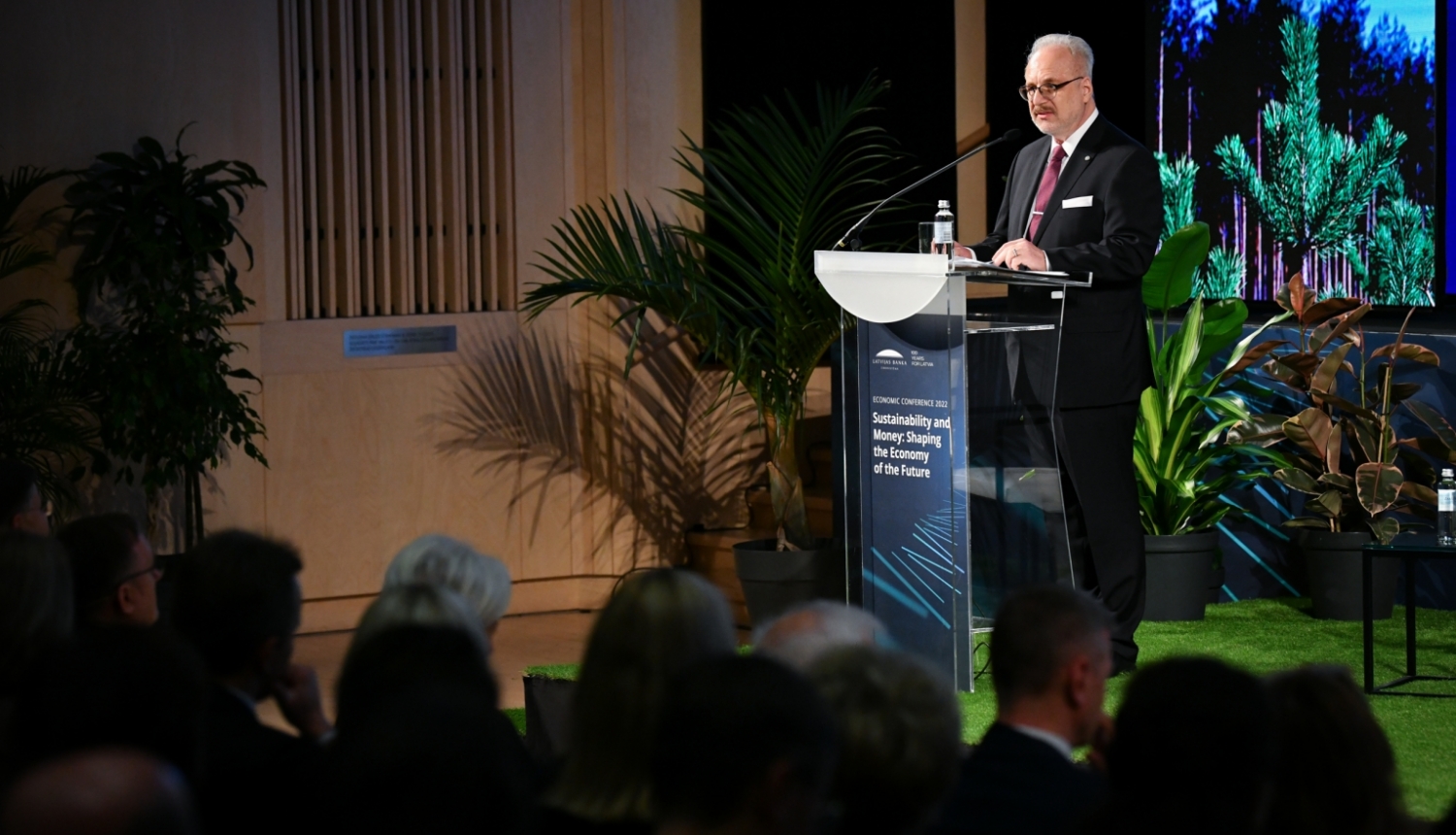On 3 November, President of Latvia Egils Levits took part in the opening of the international economic conference ‘Sustainability and Money: Shaping the Economy of the Future’ in honour of the 100th anniversary of the Bank of Latvia. ‘Role of central banks is changing in the 21st century but their independence is one of the universal truths in modern economic theory; that should not change,’ President said.
In an environment where economics are growing more complex, Latvia and its European partners should focus on common goals, Egils Levits suggested. ‘We are bound by a common currency and values, laws and interests that we should protect at all times. Close cooperation between member states and with transatlantic partners and other like-minded countries is the strength of the European Union,’ President of Latvia said.
President Levits’ address to European financial sector leaders also highlighted Latvia’s economic transformation experience and the Bank of Latvia as the core of national financial system since 1991 when Latvia became free again. ‘Our central bank is the core of our financial system – it is a force that makes our country move forward and stabilises it. It is only natural that the Bank of Latvia continues to be the main agent of change today and is involved in solving future challenges faced by our people,’ Egils Levits pointed out.
President praised the Bank for steering its monetary policy towards comprehensive sustainability goals and urged commercial banks to take greater role in defining Latvia’s economic outlook. Latvia should develop domestic capital market and thus create new funding and investment facilities for greening, he added.
President of Latvia also mentioned the European Central Bank’s digital euro initiative which aims to develop payment autonomy and monetary sovereignty. ‘To ensure lasting consumer confidence in our currency, we must prioritise privacy. We must develop technologies and simultaneously define new legal principles eliminating risks or damage to the scope of people’s rights and freedoms,’ Egils Levits underlined.





